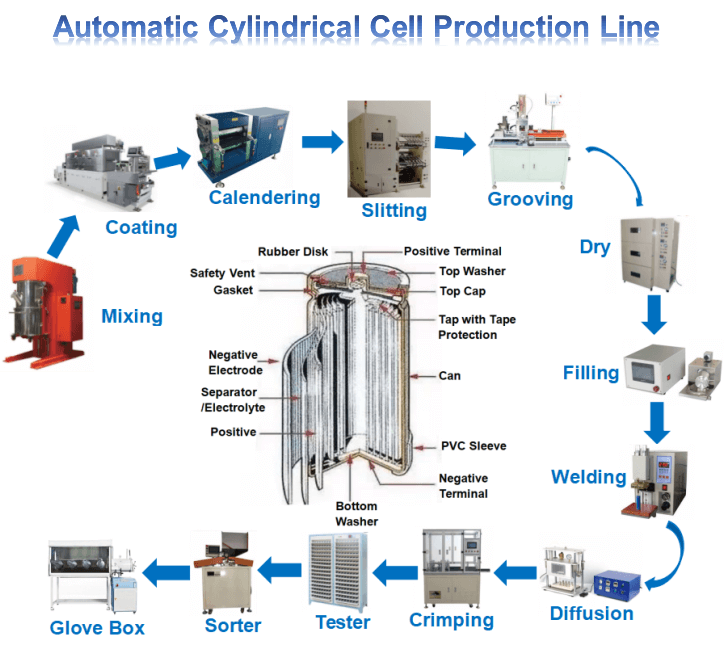A lithium battery pilot line refers to a production line or facility used for the initial testing, development, and small-scale production of new battery technologies or battery-related products. It serves as an intermediate step between laboratory-scale research and full-scale commercial production. The primary purpose of a battery pilot line is to validate and refine manufacturing processes, assess product performance, and gather data for scaling up production to a larger, commercial scale.
Here are some key characteristics and functions of a lithium battery pilot machine:
Research and Development (R&D): Battery pilot lines are often used for R&D purposes to develop and optimize battery technologies. Researchers can explore various materials, cell designs, and manufacturing processes.
Process Validation: The pilot line helps validate and fine-tune the manufacturing processes before mass production. This includes electrode preparation, cell assembly, electrolyte filling, and sealing.
lithium battery Scale Production line: While not for full-scale commercial production, pilot lines can produce small quantities of batteries for testing, prototyping, and initial market entry.
Data Collection: Pilot lines collect data on product performance, quality control, and process efficiency. This data is crucial for making informed decisions during scale-up.
Material Testing: Researchers can test and evaluate different materials for electrodes, separators, and electrolytes to determine their suitability for the intended application.
Scale-Up Assessment: Information gathered from the pilot line is used to assess the feasibility and cost-effectiveness of scaling up production to a larger, commercial facility.
Quality Control: Quality control measures are implemented to ensure that the produced batteries meet specified performance and safety standards.
Flexibility: Battery pilot lines are often designed to be flexible, allowing for quick adjustments and changes to accommodate different battery chemistries and designs.
Collaboration: Pilot lines may serve as collaborative platforms where researchers, industry partners, and government agencies work together to advance battery technology.
Market Entry: Companies may use pilot lines to produce limited quantities of new battery products for market testing and initial customer feedback.
Battery pilot lines are essential for bridging the gap between laboratory-scale research and full-scale commercial production in the battery industry. They play a crucial role in accelerating the development and deployment of innovative battery technologies, ultimately contributing to the advancement of energy storage solutions and the transition to cleaner energy sources.

 fr
fr en
en de
de ru
ru es
es pt
pt ko
ko tr
tr pl
pl th
th







 réseau ipv6 pris en charge
réseau ipv6 pris en charge